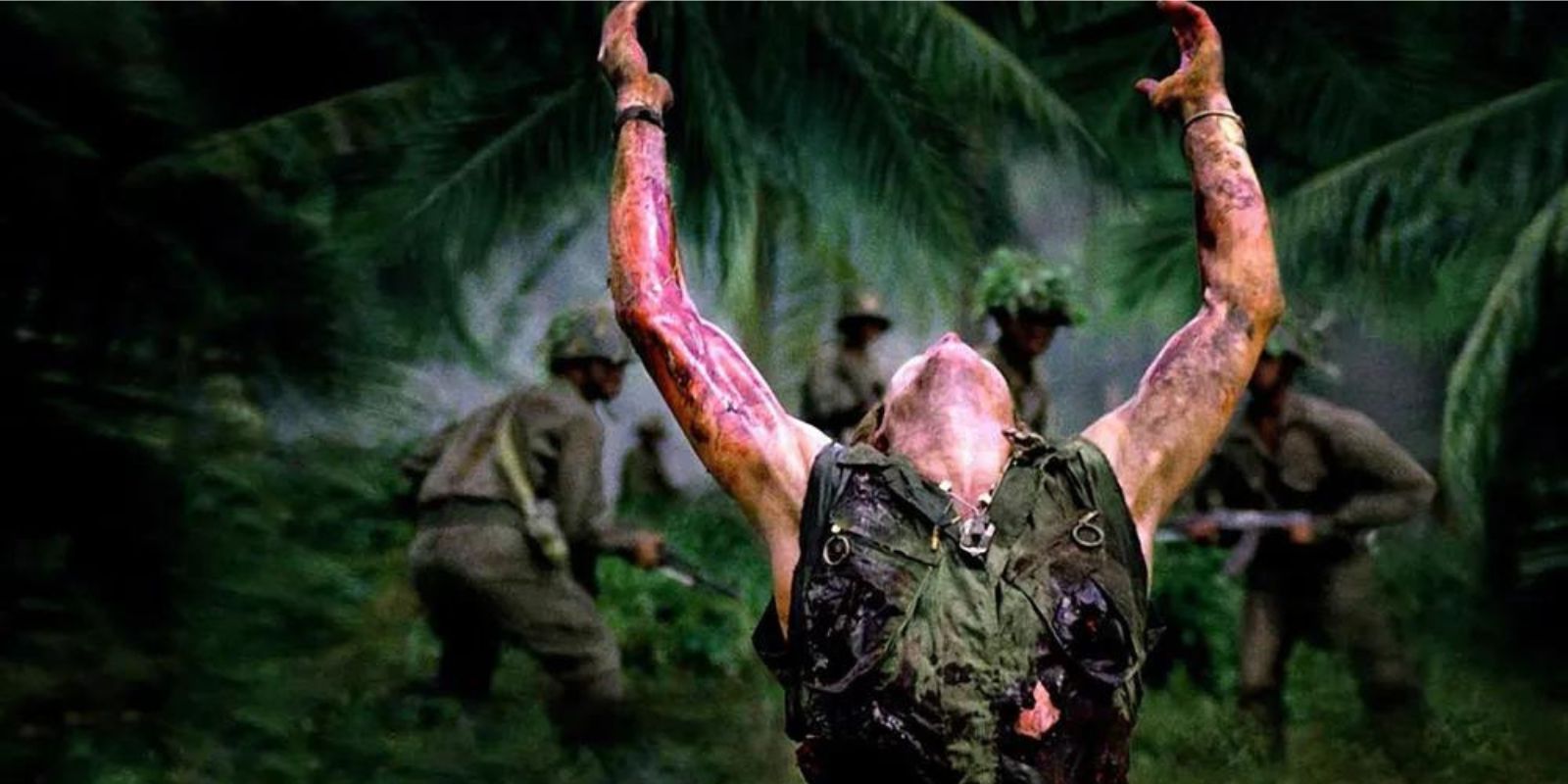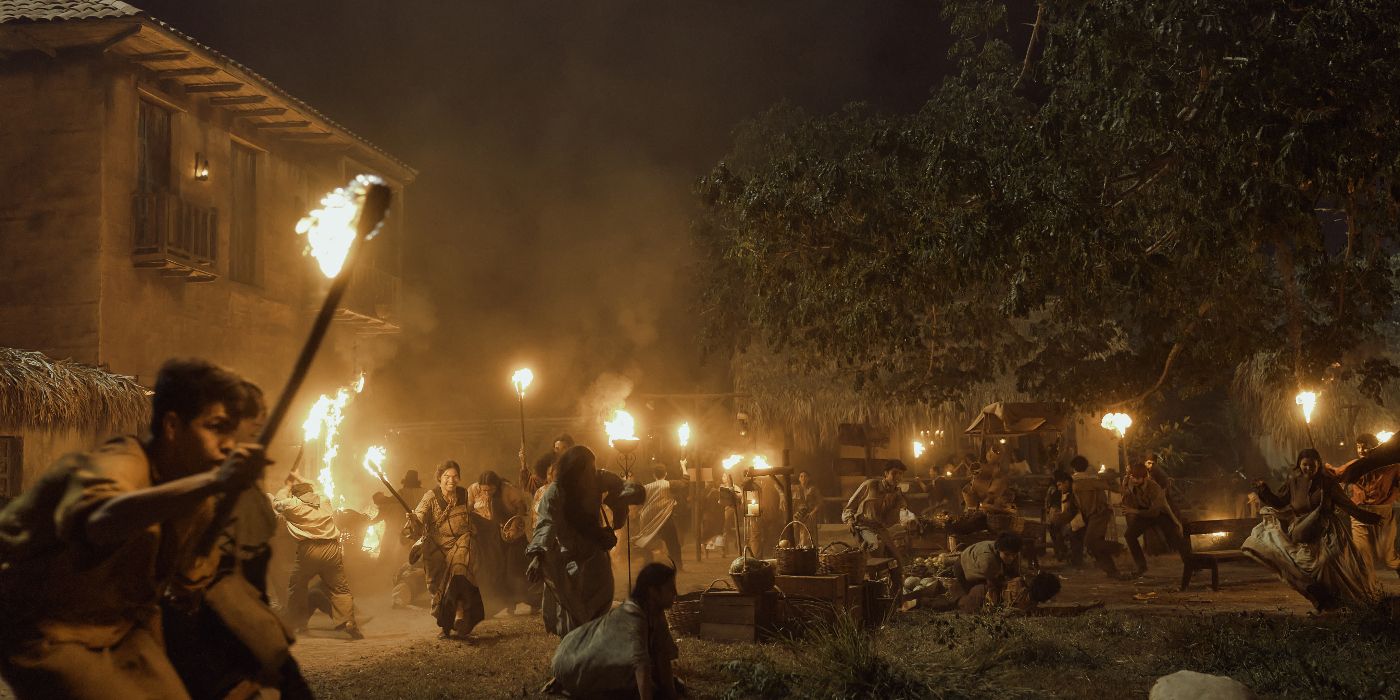
One Hundred Years of Solitude: Unraveling the Bloody War
Editor’s note: The below contains spoilers for Netflix’s One Hundred Years of Solitude.
When a series seamlessly transitions between genres—moving from fantasy drama to political thriller and then into an intense war narrative—it’s a significant achievement that merits commendation. Netflix’s ambitious adaptation of One Hundred Years of Solitude accomplishes this remarkable feat by chronicling the establishment of Macondo, its evolution within the innovative global landscape, and its tumultuous involvement in Colombia’s political turmoil, ultimately leading to a harrowing portrayal of war’s devastating costs. The continual engagement with the Buendía family throughout this journey ensures that the civil war depicted in the latter part of the series is not just a backdrop but rather a deeply tragic conflict, marked by the chaos caused by extremists like Aureliano (Claudio Cataña).
While the fictional town of Macondo serves as the setting for this tale steeped in magical realism, the brutal warfare depicted mirrors the historical realities of Colombia’s War of a Thousand Days. The adaptation extends the timeline of this conflict to emphasize its effects on the characters and their families, although the show shifts the focus from the economic origins of the strife to its political implications. This narrative choice highlights the horrific bloodshed and the devastating impact on families torn apart by civil war, echoing the real-life struggles faced during this tumultuous period in Colombian history.
Explore How ‘One Hundred Years of Solitude’ Reflects Colombia’s War of a Thousand Days
Colombia’s War of a Thousand Days lasted from 1899 to 1903 and pitted the Liberals against the Conservatives in a fierce struggle for power. The Liberals championed a laissez-faire economic policy that aimed to support the coffee growers, but their influence waned after the 1885 elections, which saw the Conservatives wrest control away from them. By 1899, coffee farmers were desperate, suffering from dwindling profits due to a new paper currency that triggered rampant inflation, further devastating their livelihoods. This economic turmoil set the stage for the conflict that would engulf the nation.
As war erupted in 1899, it formally lasted about seven months, culminating in the Liberal defeat at the Battle of Palonegro in May 1900. However, brutal guerrilla warfare persisted in rural areas where Liberals found support among local farmers. The Conservative government resorted to oppressive measures, including property seizures and ruthless imprisonments, to stifle the Liberal rebellion. Yet, these actions only intensified the conflict, leading to a shift in Conservative strategy that eventually embraced political reform in 1902, paving the way for peace negotiations and the war’s conclusion in 1903.

Related
The 10 Bleakest War Movies, Ranked
“Somebody once wrote, “Hell is the impossibility of reason.” That’s what this place feels like. Hell.”
Examine How ‘One Hundred Years of Solitude’ Shifts Focus From Economic Injustice to Political Corruption
Given the character-driven nature of the series, it makes sense that the adaptation emphasizes the political motivations underlying the conflict, particularly the stark ideological divide between the Liberals and Conservatives. While characters like the fictional Magistrate Cosmote (Jairo Camargo) engage in political corruption to maintain Conservative dominance, the narrative intentionally downplays economic issues such as the coffee market and peso inflation, which played significant roles in rallying widespread support for the Liberal rebels. This focus on political machinations adds a layer of depth to the storytelling.
Focusing on political corruption allows the series to delve into the emotional weight of the conflict, showcasing the executions and harsh realities under martial law that vividly illustrate the stakes. This approach sheds light on the brutal motivations of characters like Aureliano and Arcadio (Janer Villareal), who become increasingly ruthless in their fight. The series captures the tragic inevitability of their dark and violent paths, suggesting that the Conservatives’ attempts to prevent rebellion may have inadvertently birthed the very chaos they feared.
The portrayal of warfare, particularly through Aureliano’s character, is strikingly accurate. His transition from joining the Liberal forces to engaging in guerrilla warfare marks a significant turning point, illustrating the escalation of violence that grips the nation. The estimated death toll during the War of a Thousand Days ranges from 60,000 to 130,000, and the graphic depiction of massacres by both sides highlights the tragic consequences of unchecked violence. Aureliano’s descent into brutality, as he eliminates anyone he perceives as a threat, underscores the chaotic nature of war, where power often falls into the hands of desperate regional warlords.
While the series presents clear distinctions between the historical War of a Thousand Days and the fictional civil war of One Hundred Years of Solitude, it captures the tragic aftermath of the conflict accurately. The adaptation’s emphasis on political corruption and extremism offers compelling character motivations, illustrating the events that propel individuals toward violence. Even characters like Aureliano, initially portrayed as gentle souls, have their breaking points, leading to a harrowing exploration of how senseless and devastating civil conflict can become. Ultimately, One Hundred Years of Solitude masterfully conveys the futility of war, as the characters find themselves lost in a cycle of violence, often forgetting the original cause of their strife.
One Hundred Years of Solitude is available to stream on Netflix in the U.S.
Watch on Netflix

One Hundred Years of Solitude (2024)
One Hundred Years of Solitude (2024): Based on Gabriel García Márquez’s acclaimed novel, the series chronicles the multi-generational story of the Buendía family in the fictional town of Macondo. As magical realism intertwines with historical events, the family’s triumphs and tragedies reflect broader themes of love, power, and destiny.
- Release Date
- December 11, 2024
- Cast
- Eduardo De Los Reyes , Claudio Cataño , Jerónimo Barón , Marco González , Leonardo Soto , Susana Morales , Ella Becerra , Moreno Borja , Carlos Suárez , Santiago Vasquez
- Main Genre
- Fantasy
- Release Window
- 2024





